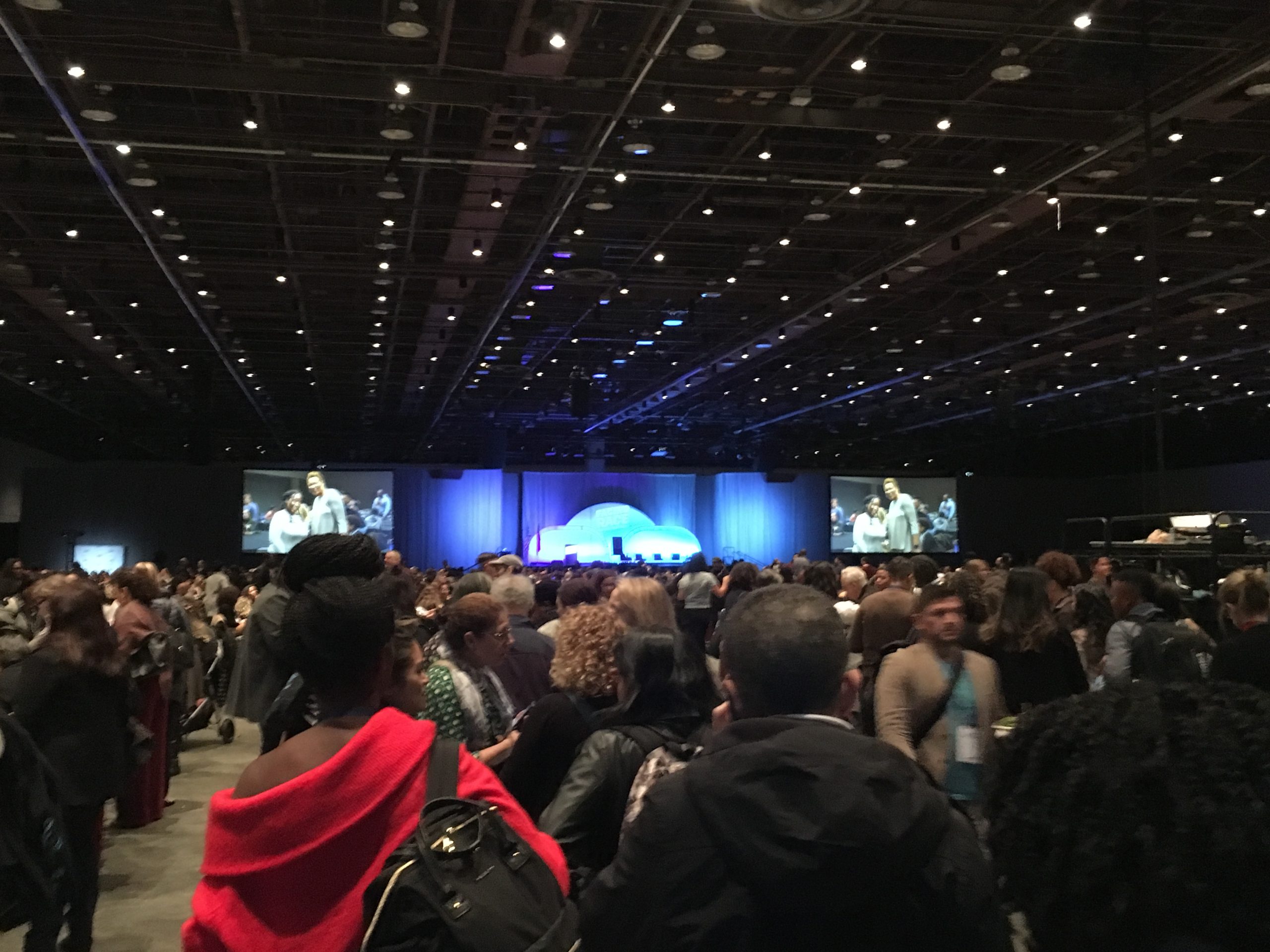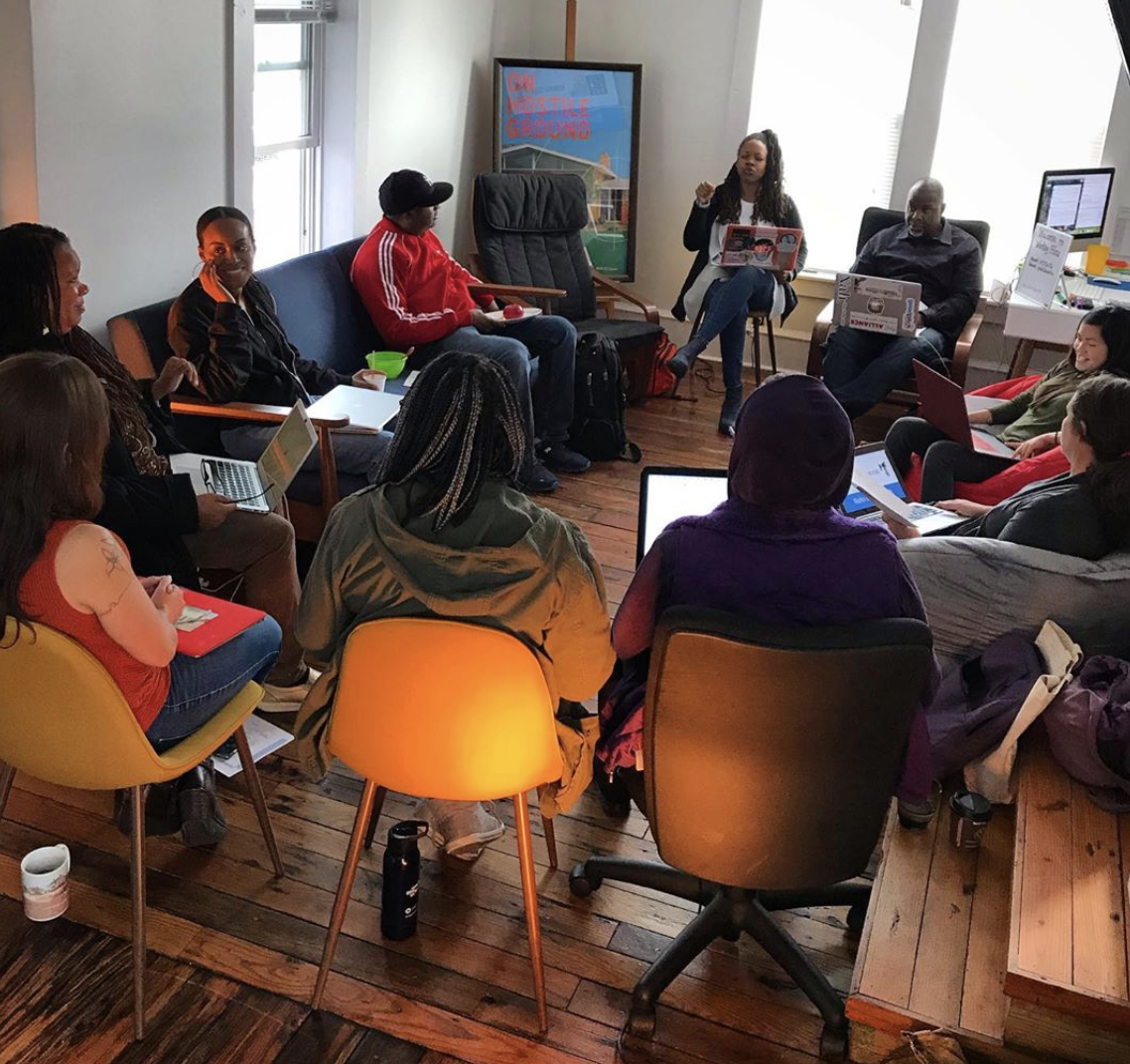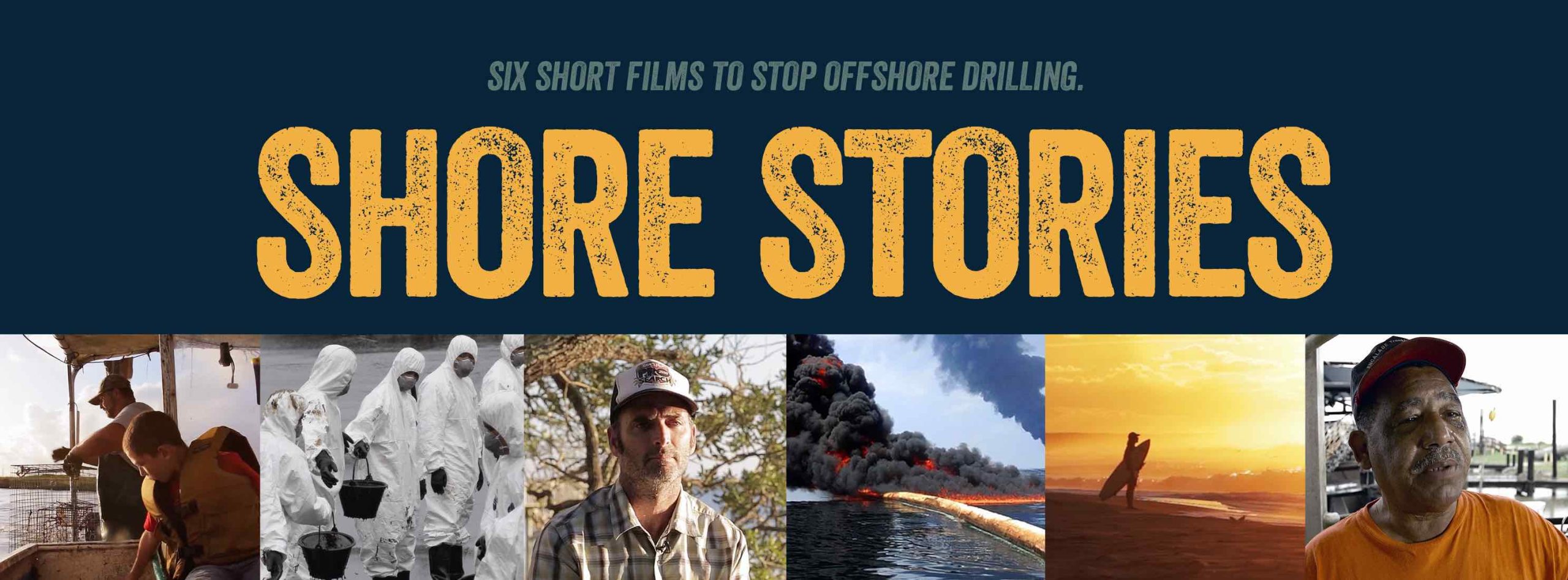On October 2nd, I attended a screening of Blue Vinyl (a documentary by Working Films’ cofounder, Judith Helfand about the hazardous effects of Polyvinyl Chloride, or PVC) at the Aperture Gallery in NYC. When I stepped out of the elevator onto the 4th floor, I was greeted by enormous photo prints of industrial Louisiana landscapes along the corridor of the Mississippi River between Baton Rouge and New Orleans.
 |
| Holy Rosary Cemetery and Dow Chemical Corporation (Union Cardbide Complex), Taft, Louisiana, 1998. The Union Carbide Corporation purchased the property of the Holy Rosary Church, built circa 1866. A replacement church was constructed in the 1960s in nearby Hahnville, but the cemetery was left behind. In 2009, Dow (which now owns the complex) leaked 26,720 pounds of vaporized ethyl acrylate (EA), a Class II toxic air pollutant, into the atmosphere. No fine was levied, but Dow has pledged a $100,000 contribution to the Supriya Jindal Foundation for Louisiana’s Children, which is led by the wife of the current governor of Louisiana. |
As I made my way around the gallery, I started to see the connection to this Blue Vinyl screening. The photos on display are a part of Petrochemical America: Picturing Cancer Alley, a collaboration between photographer Richard Misratch and landscape architect Kate Orff, which presents itself in a 240 page book exploring this region of intense chemical production and the detrimental effects the byproduct has on the land and the human beings that live right next door, in direct line of toxic chemicals.
 |
A giant map that identified every chemical component manufactured by these factories took over one wall of the exhibit. |
 |
A map displaying the entire area of the United States connected to the Mississippi River as “Cancer Alley”. |
After the screening, Gina Wirth of SCAPE led a discussion with environmental health historian David Rosner (who appears in the film) and Mike Schade (a co-creator of the campaign that was built around Blue Vinyl), Campaign Coordinator for the Center for Health, Environment & Justice (CHEJ). The Petrochemical America exhibit paired with the Blue Vinyl screening really brought back memories for David as he had spent a lot of time in Louisiana working on PVC related cases and he recounted stories of his time in Cancer Alley.
 |
Although the film has been out in the world for 10 years, CHEJ continually uses it to hold screenings and discussions as it is still relevant to the issues faced by communities that live in close proximity to toxic chemical plants. Mike highlighted the successes CHEJ has had in getting corporations to phase out PVC products. These companies include Apple, Google, Target, and IKEA among many more. Currently they are focused on getting more NYC schools to go PVC-free. According to a CHEJ factsheet “children coming into contact with vinyl flooring have been found to have a higher risk of developing asthma, the #1 cause of school absenteeism and a leading cause of hospitalization for children”. You can read more facts about affects of PVC on children’s health on the CHEJ website. Below are some ways that you can take action now!
Switch to green cleaning products in your home.
Chemicals in traditional cleaning products can cause serious health problems in children, including, neurological disorders, learning disabilities, and reproductive problems. Use our green cleaning resources to make the switch in your home, school, or wherever you use cleaning products.
Form a Green Flag Team in your school.
CEHP’s Green Flag Schools Program for Environmental Leadership provides a framework for students to become environmental leaders and contribute to positive change in their communities. Through the program, students of all ages learn environmental concepts, investigate their schools, and identify solutions for making their schools safer and healthier. Download the Green Flag start-up materials.
Educate yourself.
Be sure to peruse our library of reports, information on green cleaning,pesticides, and indoor air quality, our list of sample policiies, and ourPowerPoint presentations on a range of issues impacting children’s environmental health. Be sure to also check out the websites of some of our partner organizations.





